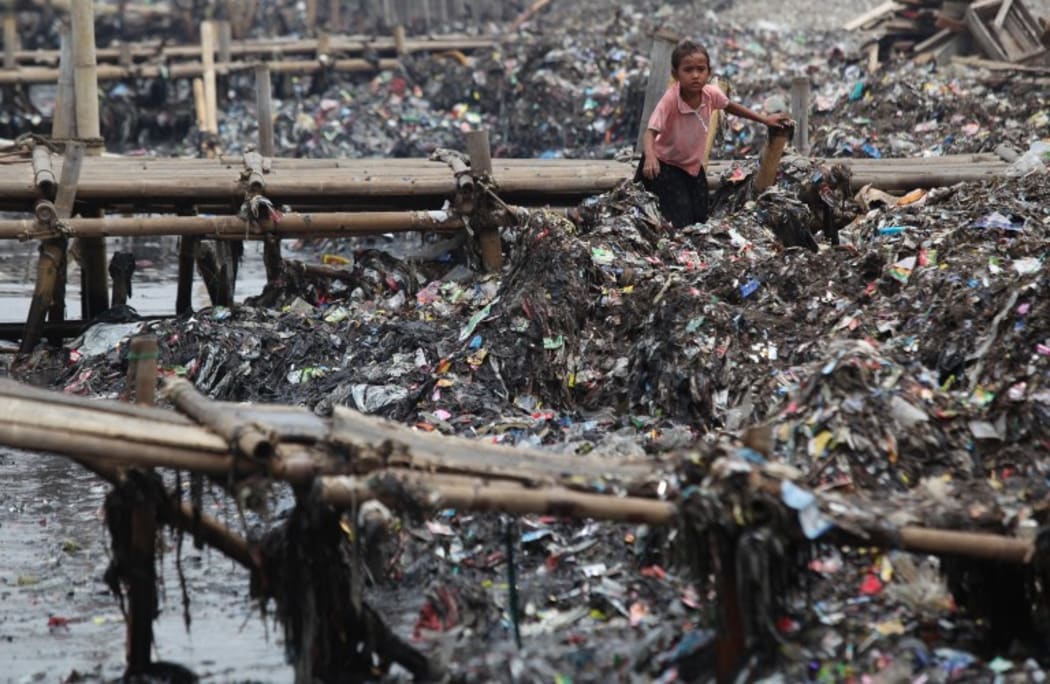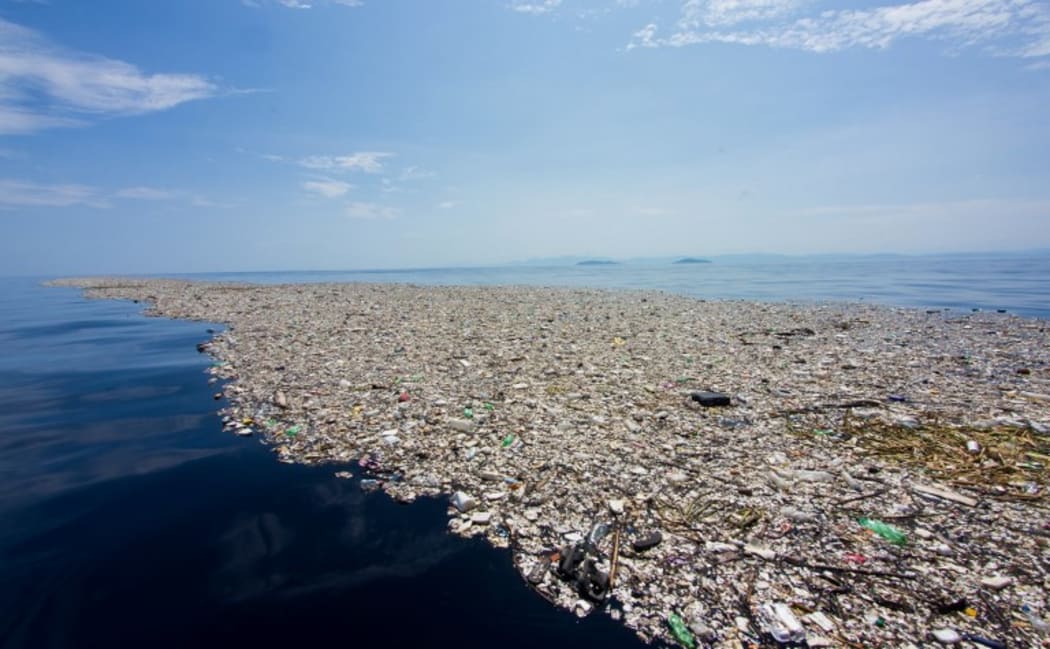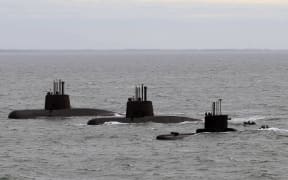A plan for zero tolerance of plastic pollution of the oceans may be agreed by nations at a UN environment summit.

An Indonesian child collects rubbish on the coast near a fishing village in Jakarta, Indonesia. Photo: AFP / Agoes Rudianto / ANADOLU AGENCY 2016
Governments are being asked to move towards a legal treaty banning plastic waste from entering the sea.
At the moment ships are prohibited from dumping plastic overboard but there's no international law against plastics flooding into the sea from the land.
Experts say ocean plastics are an obvious subject for a global treaty: plastics present a large-scale threat.
Plastic pollution doesn't recognise international borders.
Delegates in Nairobi preparing the way for the UN's environment ministers meeting next week are said to be in broad agreement on the need for tougher action to combat the plastics crisis.
They are setting up a working party to explore options for global action to tackle plastic waste and microplastics.
The US has volunteered to take part, but is traditionally resistant to agreeing any international laws.

Plastic waste floating off the coast of Honduras in September 2017 Photo: AFP / CAROLINE POWER PHOTOGRAPHY
Paris model
One idea is to mirror the model of the Paris climate agreement.
In that deal, the framework of reporting emissions cuts and agreeing long-term goals is legally binding - but the national actions themselves are voluntarily determined.
Environmentalists say getting better information on how much plastic is flowing into the sea from what sources would be a major step.
The UN has already committed to substantial reduction of plastic waste by 2025 but a resolution led by Norway says the long-term aim must be for zero plastic waste.
It also wants to clean up of existing plastic from beaches. It says this is better value for money and better for the environment than some of the large-scale clean-up experiments currently in the mid Pacific - which it fears may harm wildlife.
Cleaning up beach plastic is especially important, it says, because abrasion breaks down large plastics into very harmful microplastics.
Norway also favours attempts to clear up "ghost" fishing gear discarded in the seas.
The conference will also hear that stronger leadership and co-ordination is needed - either from a strengthened UN Environment Programme, or perhaps even a new UN plastics agency.
China - the world's biggest plastics polluter - is said to be cautious about being bound by global rules. Other big polluters like India and Indonesia are said to be generally supportive about the resolutions.
- BBC




